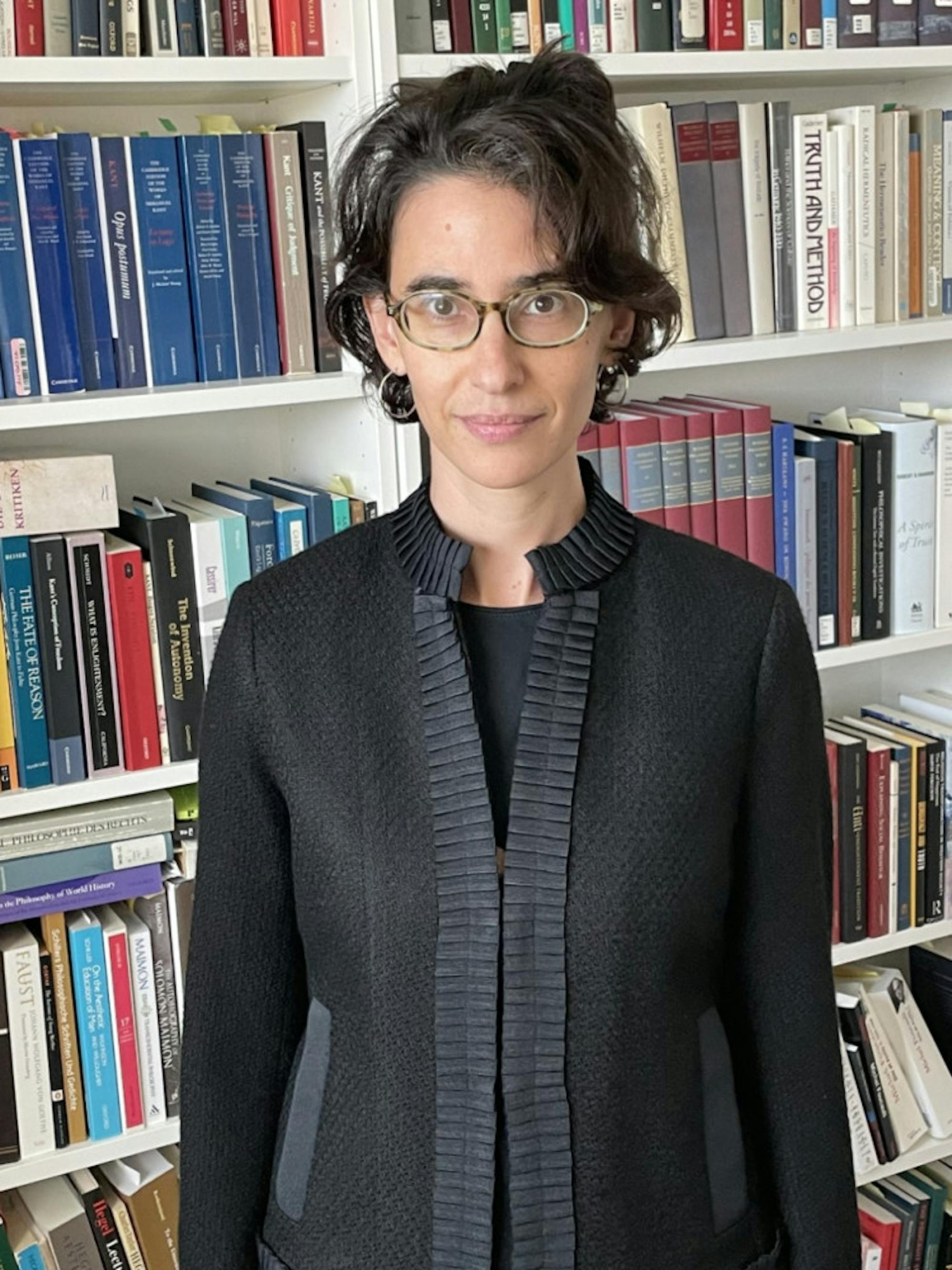With the start of each semester, Tufts welcomes new faculty who bring their unique and nuanced perspectives into the fabric of Tufts’ academic community. Shterna Friedman joined the Department of Political Science as a lecturer for the 2022–2023 academic year, contributing her specialty in critically examining systems of oppression through the lens of the history of political thought.
Friedman attended Barnard College and majored in philosophy, after which she hoped to pursue a career in fiction writing. She attended the Iowa Writers’ Workshop and earned her Master in Fine Arts. However, after years of professional fiction writing, Friedman felt emotionally burnt out.
“I was writing from a place of pain,” Friedman said. “I was basically immersing myself in pain every time I wrote, and I realized I didn't have to live like that.”
During her years as a writer, Friedman also worked as the managing editor of Critical Review, a political theory journal. She edited manuscripts, dived into political theory and started to feel a yearning to understand where people come from and how humans built the societies and systems in place today.
Friedman sought to answer these questions, becoming more and more interested in reading historical perspectives of political theory. Once she began, she could not stop.
A friend preparing to study political theory in graduate school at Harvard University invited Friedman to join his reading group, and thus she grew her knowledge base further.
“We read Hobbes, Locke, Rousseau, Spinoza, Kant. And just reading political theory, historically, taking a chronological approach towards political theory, made me realize that I actually had had a real interest in it,” Friedman said. “What drew me most to philosophical questions was really [the] historical approach to philosophical problems.”
Friedman shifted the trajectory of her life, pivoting to graduate school in 2016 at the University of California, Berkeley, where she is currently pursuing her doctorate. At UC Berkeley, she became further intrigued by identity politics within systems of oppression and by the origins of our ways of thinking about these concepts. The idea of being able to understand the present by following the path of civilization’s history drew Friedman further and further into the realm of political theory.
Friedman’s fascination with otherness and examining the ways that society draws its divisions united her dual interests in political theory and fiction writing.
“What happens in fiction writing is you're trying to get into the mind of another human being, even if it's a human being of your own creation. And when you're doing political theory, from a historical perspective, you're doing the same thing. You're trying to get into the minds of another living human being, but it's someone who actually is living or has died,” Friedman said. “It's the same kind of imaginative, sympathetic process of critical identification.”
This semester, Friedman is teaching a course entitled The Politics of Us and Them. The course will focus on understanding political alterity — or otherness — by looking with a historical lens and sympathetically imagining oneself within the minds of others, she explained.
“It's a way of trying to understand people who are not us, and that's basically everyone. And it's a way of trying to understand even ourselves as others, meaning as strangers to ourselves,” Friedman said.
Friedman moved from California to Cambridge in order to be an exchange scholar at Harvard and work with scholars within her specialty that are concentrated on the East Coast. She applied for an academic position at Tufts, and she is excited to become a part of the Tufts community this year.
The political science faculty have been welcoming to Friedman, and she appreciates that they too prefer teaching history of political thought rather than focusing more heavily on contemporary political theory.
“I love the Tufts theory faculty. I really respect their work,” Friedman said. “They're all very historically inclined. They're all just serious scholars. I was thrilled when they hired me.”
This semester, Friedman will also be teaching a class called Early Modern Society and Its Discontents. The course will examine the major philosophers who began thinking about modern society as a system and the consequences of that system. She hopes to teach another version of this class in the spring that will focus on different philosophical figures.
Friedman will teach this year while also finishing her dissertation entitled “Kant, Hegel, and the Rise of Systemic Social Theory.” She focuses on the German thinkers, Kant and Hegel, and their concept of totality, as well as the way this is contradicted by later thinkers such as Marx and Foucault. She knew she wanted to study Marxist theory, and from there followed the history that led to his thoughts.
“For anyone who's interested in Marx, you have to study Hegel, and to study Hegel, you have to study Kant. In principle, you really have to study everyone who's influenced anyone you're interested in. So the process goes on to infinity,” Friedman said.
Friedman hopes to create a collaborative classroom environment, where she can not only teach but also learn through conversation with her students.
“I don't really approach education as a way of transmitting information as opposed to thinking together about very important problems. So what I'm just hoping is for fellow thinkers to join me in thinking about these really deep and important problems,” Friedman said.
Friedman continues to be immensely passionate about her specialty and looks forward to bringing her love of political theory to Tufts.
“[My field of study] unites philosophy and history and synthesizes them so that it's more than just philosophy and it's more than just history,” Friedman said. “You can understand history philosophically. You can theorize history, instead of seeing history as just a series of facts and events. And you can approach philosophical problems historically, by asking where they come from.”






